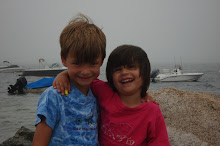
Two thirds of the way through this book, I stumbled across the word "balaclava" and had no idea what that was.
The scene features a bad guy breaking into a house. He's planning to kill someone. (Yeah, it's not high art. Workaday potboiler set in Glasgow.) The paragraph reads: "He spat silently onto his fingertips and rubbed the exposed hinges on the gate, trying it tentatively at first until he was sure it made nothing louder than a mild creak. Pausing only to pull his balaclava on, he adjusted the eye holes and slid through the gate into the garden. "
Okay. Must be, a ski mask, but what's the reference?
It's a close-fitting garment that covers the head and face, but with eye holes. Usually made of wool. Was used in the Crimean war. Named for the city of Balaclava (above). Apparently troops stationed there in the 19th century needed face masks to protect them from the winter cold, and English wool did the trick. Still used by skiers. It's especially popular for outdoorsy types with asthma, because it traps exhaled moisture where it can be recirculated into the lungs. Its like having a private humidifier in the bitter cold. At least Wikipedia tells me so. Wonder if any of it is true.
Learned something new today. Proper vocabulary for the attire of criminals and terrorists and outdoor enthusiasts everywhere. Running to the dictionary is one of the great pleasures of reading. Especially this book in which young men are "yobs," people are described as "prole" or "proddy," (generally the f-bomb is dropped first) the police are "polis." I have keep my desktop dictionary widget handy at all times.






No comments:
Post a Comment